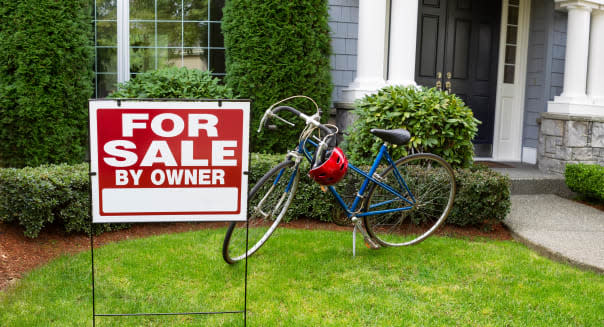Why Higher Interest Rates Will Worsen the Housing Market

If you're looking to buy a home in the next year, you might want to do so before higher interest rates make financing such big-ticket purchases a lot more expensive. The Federal Reserve, which controls the supply of U.S. dollars and short-term interest rates, has indicated that it could start raising rates as soon as June.
Interest rates have been so low for so long that people might have forgotten what it's like to pay "normal" interest rates of 6 percent to 8 percent for a loan. But if rates rise, the impact will be felt by nearly everyone trying to buy a home and even those trying to sell their home.
Interest Rates and Borrowing Power
When you apply for a loan at a bank, they try to assess your ability to pay back the loan given your income and the loan's monthly payment. The higher your income, the larger the allowed payment, but interest rates play a big role in how large the payment will be. Even a slight rise in historically low interest rates could make it a lot more expensive.
Below, I've laid out the monthly payments for 15-year and 30-year $100,000 mortgages at different interest rates, not including any fees, like private mortgage insurance or property taxes. As you can see, a 1-percentage-point increase in interest rates from 4 percent to 5 percent on a 30-year mortgage results in a 13 percent jump in monthly payments. A 2-percentage-point increase results in an incredible 26 percent increase in monthly payments.
Term | 4% Interest | 4.5% Interest | 5% Interest | 6% Interest |
|---|---|---|---|---|
15-Year Mortgage | $740 | $765 | $791 | $844 |
30-Year Mortgage | $477 | $507 | $537 | $600 |
Source data: Google mortgage calculator
The reason those higher payments are important is that they play into how much borrowing power you have. A bank is trying to figure out how much it can loan you and still expect you to pay it back on time, but the bank doesn't necessarily care how big the loan is. What it really cares about is whether you can make the monthly payment.
So, let's look at how a constant monthly payment impacts the size of home you may be able to buy. Below, I've calculated the maximum loan that could be taken out for the corresponding payments and interest rates.
Monthly Payment | 4% Interest | 4.5% Interest | 5% Interest | 6% Interest |
|---|---|---|---|---|
$1,000 | $209,461 | $197,361 | $186,282 | $166,792 |
$2,000 | $418,922 | $394,722 | $372,563 | $333,583 |
$3,000 | $628,384 | $592,083 | $558,845 | $500,375 |
Source data: Google mortgage calculator
Even with the same monthly payment, a 2-percentage-point increase in interest rate reduces borrowing power by 20 percent. As rates rise, that could have a major impact on not only your purchasing power but the entire housing industry.
Why Interest Rates Would Hurt Housing
This dynamic among payments, interest rates and borrowing power could have a profound impact on a housing market that's still recovering from the recession.
When you get a mortgage, the amount you can borrow depends on how much money you make and how much the monthly payment of the mortgage will be. It's no secret that wages haven't risen much at all recently in the U.S., so recently the improving housing market has been driven by the borrowing power that low interest rates have provided rather than extra income from higher wages. If interest rates rise, even slightly, they could actually send home prices -- and home values -- lower, simply by reducing the ability of new buyers to pay for a home.
For millions of Americans, the impact of lower home values could be enormous because the home is the biggest asset a majority of Americans own. And since most people have a mortgage, it's a leveraged asset, meaning losses are magnified.
If you buy a home with 20 percent down and then sell it a few years later but can only get 90% percent of the price you paid, your loss is half of your down payment. That's a big loss on an asset that people don't usually expect to lose money on.
Higher Interest Rates Are Coming -- Someday
There's no doubt that higher interest rates are coming someday; the challenge is that no one knows quite when they'll arrive. With the economy and unemployment improving, the market is currently betting that the second half of 2015 will start to see higher interest rates, and consumers should know how it could impact them.
Higher interest rates mean lower borrowing power, so whether you're thinking about buying or selling a home, you might want to start thinking about how those changes will impact you in the future.
Travis Hoium is a Motley Fool contributor. Try any of our Foolish newsletter services free for 30 days. Check out our free report on one great stock to buy for 2015 and beyond.

